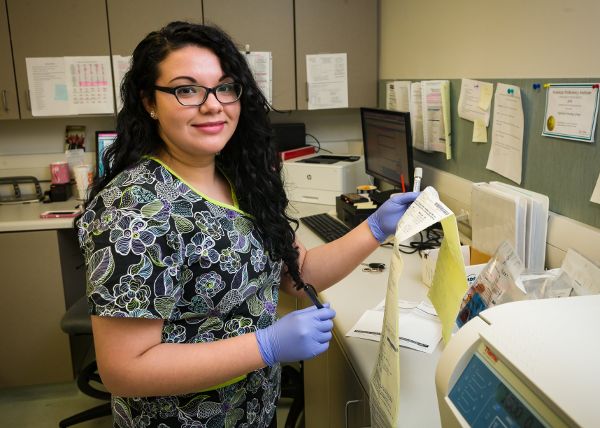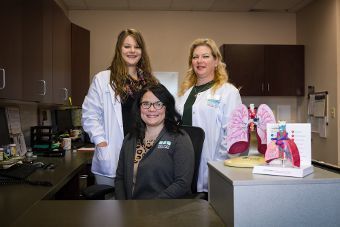Diagnostic Imaging | CT
What is a CT (Computerized Tomography) scan?
A CT scan is a noninvasive procedure that utilizes x-ray with the aide of contrast media (iodine-based dye and oral barium) to create images of internal structures of the body such as the bones, lungs, lymph nodes, blood vessels, and other organs. The CT scan provides cross-sectional pictures of the body in slices like a loaf of bread. The detailed information provided in these slices can assist in the diagnosis of a wide variety of medical conditions.
What are the benefits of a CT scan?
CT scans are often used to clarify an unusual or unexpected finding or to help discover the cause of symptoms a patient may be experiencing. The physician will usually order a CT scan for the section of the body that is of interest such as the head, neck, sinuses, spine, chest, abdomen, and/or pelvis. Repeat CT scans may be ordered to identify changes in the area of interest.
How is the CT scan performed?
If a scan is ordered with oral contrast, you will be asked to drink barium about a hour before the scan time. In addition, an iodine-based dye may be injected into your bloodstream. This helps the physician to get a better look at the structures in the body. It is important for you to stay as still as possible during the scan. You may be asked to hold your breath for a period of seconds to ensure there is no movement during the scan. The scan can take 5-15 minutes depending on the area of the body that is being scanned.
All patients are required to have a special lab test to make sure your kidneys are functioning properly 30 days prior to the scan.







